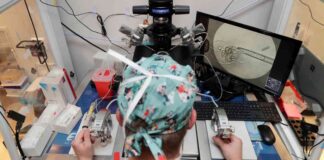A recent study released by a group of researchers has sparked a significant online debate regarding Covid-19 vaccine safety. The paper suggests a potential link between Covid-19 vaccines and a set of persistent symptoms resembling those seen in long Covid cases. While the researchers intended for their findings to stimulate academic discussion and prompt further investigation, the study quickly gained traction online, leading to heated discussions and misinformation.
The study was published last Tuesday on medRxiv, a platform for sharing unpublished research before undergoing peer review. The senior authors, immunologist Akiko Iwasaki and cardiologist Harlan Krumholz, emphasized that the findings were preliminary and required further research. They felt compelled to share their observations to encourage more thorough investigations into the possible link between post-vaccination symptoms and Covid-19 vaccines.
Krumholz, founder of the Yale School of Medicine’s Center for Outcomes Research and Evaluation, expressed his motivation for sharing the study as a response to the suffering he witnessed. He underscored the importance of following scientific evidence while cautioning against making hasty decisions based on preliminary findings.
Despite the researchers’ intentions, the study’s interpretation online has been polarizing, particularly among those who question vaccine safety. The paper has been misinterpreted as evidence that Covid-19 vaccines cause adverse effects similar to long Covid symptoms. Influential figures, such as Elon Musk, and right-wing influencers like Benny Johnson, have amplified these misinterpretations, fueling further controversy.
Critics of the study, including Adam Gaffney, have raised concerns about the widespread dissemination of misleading information. The study’s use of the term “post-vaccination syndrome” has also sparked debates, with some worrying about the political implications of the phrase during a time of heightened vaccine skepticism.
The challenges faced by vaccine safety researchers are complex, as the need for transparency can sometimes be exploited to undermine public confidence in vaccines. Signals of potential side effects must be reported and thoroughly investigated, even if they are later proven to be unfounded. Researchers like Edward Belongia, who have studied vaccine safety extensively, understand the delicate balance between scientific inquiry and public perception.
The public’s understanding of the evolving nature of science is crucial in navigating discussions around vaccine safety. Alison Buttenheim, a professor specializing in vaccine acceptance, highlights the importance of communicating scientific findings effectively, especially in a climate where misinformation can easily distort complex information.
The decision to release preliminary research findings as preprints adds another layer of complexity to the communication of vaccine safety data. While sharing information promptly is essential during a pandemic, it also presents challenges in managing public expectations and interpretations of scientific research.
In conclusion, the debate surrounding Covid-19 vaccine safety underscores the delicate balance between scientific inquiry and public perception. Transparency and effective communication are crucial in maintaining trust in vaccines, even in the face of misinformation and uncertainty. Vaccine safety researchers continue to navigate these challenges, driven by a commitment to following the science and promoting public health.

















